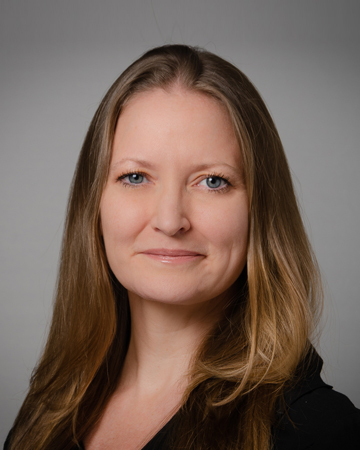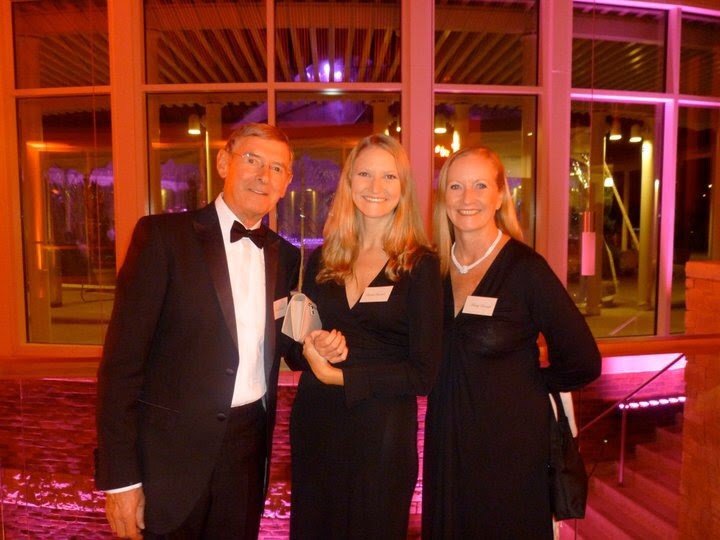
Artwork by Sarah Hurt
During the 15 months Sarah Hurt has been the general counsel at Jefferson Energy Companies, The Woodlands-based midstream company has scored huge achievements.
Jefferson Energy placed into service three separate pipeline systems – the 14.2-mile, intrastate Southern Star Pipeline, the FERC-jurisdictional Paline Connector Pipeline and the six-line Cross-Channel Pipeline system, which crosses under the Neches River between Jefferson and Orange counties.
The company also completed the issuance of Port of Beaumont bonds for $425 million and has a major terminal project well underway.
The week Hurt started her job at Jefferson in October 2020, lawyers for the company were in federal court in East Texas court fighting an injunction in a long-running land condemnation dispute that would have prevented Jefferson Energy from completing the final stages on a 14-mile pipeline connecting the largest refinery in North America to the company’s crude oil- and refined products-logistics terminal at the Port of Beaumont.

Sarah Hurt
“Sarah has spent more than 15 years as a trusted professional on both sides of the table, guiding important players in the energy industry through important legal matters, running the gamut from litigation to transactions,” says Vinson & Elkins partner Christopher Popov.
“When Sarah joined Jefferson, she took over working with a V&E team to finalize operations and maintenance agreements for new pipeline systems that connect Jefferson’s terminal with nearby refineries,” Popov says. “She stepped into negotiations, quickly assessed the situation, got Jefferson’s management and commercial team aligned on pending items, and effectively negotiated those points with the counterparty.”
Citing her extraordinary achievements as a solo GC in such a short period and under the cloud of the Covid-19 pandemic, the Houston Chapter of the Association of Corporate Counsel and The Texas Lawbook announce Sarah Hurt is a finalist for the 2021 Houston Corporate Counsel Award for General Counsel of the Year for a Small Legal Department.
For Premium Subscribers: Click Here for a special Q&A with Sarah Hurt on challenges facing in-house counsel, her pet peeves about outside counsel and what lawyers need to know about her if they want her business.
The award finalists will be celebrated and winners announced Jan. 13 at the annual Houston Corporate Counsel Awards event.
“It has been an exciting, challenging and rewarding first year,” Hurt says. “I think my management- team colleagues would consider my most important success to be the fact that I have cut Jefferson Energy’s external legal spend by approximately 80% since joining the company.”
“The work I enjoy doing myself happens to be the type of work that would cost a lot to source from outside counsel, such as complex commercial drafting and transactional work,” she says. “More broadly, in terms of company successes, we have marked numerous big events in the past year.”
Akin Gump partner Brittain Rogers says Hurt is “head and shoulders” above many of the GCs he knows.
“Sarah has an incredible curiosity about the what, how and why of complex issues,” says Rogers, who is a former GC at Fortress Investments. “Sarah walked into a highly complex situation, but she hopped right into the saddle and was able to expertly manage the public and private components.
“Sarah knows how to navigate a room very well,” he says. “She has that British accent that underscores just how extra intelligent she is.”
Hurt says she has literally come “a long way” from her youth.
Born in London’s Borough of Greenwich, on the banks of the River Thames, Hurt was reared in the southeastern corner of England in the county of Kent, which is home to the Canterbury Cathedral, home to Archbishops of Canterbury since the sixth century. She describes her hometown as “a leafy, rural village where I enjoyed playing in the garden and reading.”
Hurt’s father, Paul Dunstall, apprenticed as a joiner and cabinetmaker but then had “enormous success” as a motorbike racer and later a manufacturer and modifier of motorbikes.
“It was while dad was at the peak of his motorbike fame that he met my mum, who was working as a cashier in a bank,” she says. “My mum’s parents must have been a bit skeptical about my dad who would turn up in a different exotic sports car each week to take my mum out on dates.”
Dunstall sold his motorbike business and became a successful property developer.
“My father has always been what I call a natural engineer — mechanical and structural,” she says. “He has an innate ability to figure out how to construct things, whether that be engines, buildings or any other structure or mechanism.
“Sadly, none of these skills were inherited by me.”
Hurt was the first person in her family to go to university.
“It was especially exciting for me and my parents when I got into Oxford,” she says. “Although I hadn’t yet lived in Texas, it seems I already believed in ‘go big or go home.’”
Three years later Hurt was entering her final year of undergraduate studies with “no clear idea of what I wanted to do for a living and with the slight impending sense of panic that I would need to make a decision very soon.”
Her peers at Oxford overwhelmingly had three options: management consulting, investment banking and law.

“I knew immediately that I wouldn’t be an investment banker. Numbers are not my friend,” she says. “I’m a words person. Similarly, there was no way I was going to be a management consultant, as I couldn’t imagine emerging green and blinking from university and trying to advise someone how to run their business.”
“Because of my English studies and my love of words (and discussions with a close friend who had chosen law school) I discovered that law was to be the perfect career for me,” she says.
The prestigious London law firm Slaughter and May, known in the legal profession as a “Magic Circle Firm,” hired Hurt straight from Oxford law school, where she practiced corporate law for more than six years.
In 2009, she decided to move to Houston for personal and professional reasons, as her practice focused more and more on energy law.
But it was 2009. The corporate legal world in Texas was still reeling from the Great Recession and the financial crisis.
“No one was hiring,” she says. “I did 17 interviews in two weeks.”
But two firms did make offers: Bracewell and V&E.
Hurt spent two years at Bracewell and three years at V&E. Both, she says, provided her with enormous and invaluable energy law experience.
If 2009 and 2010 were slow, 2012 to 2014 were anything but. The boom in the shale plays were in full force. Private equity and international energy interests were flooding the Texas market with investments.
With the intense and heavy workload also came enormous pressure. About a year after joining V&E, Hurt realized that “my mental health needed some attention.” She had previously been diagnosed with depression and anxiety, but she had managed it.
“I started to feel as though I was experiencing burnout,” she says. “Interesting, important transactions started to look less like fun and more like work — a feeling with which I wasn’t at all familiar. I battled for a while with the decision of whether to talk to the firm about it.”
But Hurt says she was still reluctant to tell anyone because of the stigma on mental health in the workplace.
Finally, she “took the plunge” and met with V&E partner Marcia Backus, who was then the head of the Energy Transactions & Projects group and is now the general counsel at Occidental Petroleum.
“Despite my nerves, I found Marcia to be kind and understanding. I got the help I needed, and I started enjoying life and work again,” she says. “The firm was so open and supportive in talking about mental health issues that, with their support, I went on to establish a firmwide mental health initiative designed to reduce stigma and educate people about the issues. It made a difference to a lot of people, and I’m extremely grateful for that opportunity.”
In 2014, Hurt was approaching a decision whether she wanted to make a run at being a Big Law partner. She took the opportunity to examine her future career choices.
“I realized that the more senior I became in any law firm, the less time I would be able to spend doing the core work that I most enjoy — drafting things from scratch, getting into the weeds, managing the minutiae of transactions,” she says.
As a law firm partner, she would need to spend more time on client development, which she says didn’t give her “the same gratification as simple lawyering.”
By contrast, the idea of going in-house meant doing more of the work she enjoyed and allowed her to “become involved in strategic commercial decisions and add real value to a business.”
Hurt spent five years as senior counsel at NiSource, which was a gas gathering business, and Columbia Midstream, where she worked on Columbia’s IPO and then $13 billion merger with TC Energy.
In 2018, Eureka Midstream offered her the position of general counsel. As the pipeline company’s first GC, she created and implemented a value-driven legal function from scratch, oversaw the HR department and created and oversaw a corporate- communications function.
Exactly 11 days after she started as the GC, a potential buyer approached the company about an acquisition.
“I knew starting day one that Eureka was for sale,” she says. “Morgan Stanley had invested in Eureka four or five years earlier, and I knew they had no intention of staying in the midstream business.
“We were in due diligence mode the entire time I was at Eureka,” she says.

Sarah Hurt (center) with her parents, the Dunstalls
The first buyer didn’t work, but EQM Midstream a few months later, in 2019, purchased Morgan Stanley Infrastructure Partners’ interest in Eureka for $1.03 billion.
After working herself out of a job with the sale of her company, Hurt took a few months off. Then the Covid pandemic hit, which limited opportunities for job interviews and networking.
But she made the most of the 14 months off. She built a home art studio and worked on an array of projects including watercolors, paintings using only makeup and crocheting.
Through a women’s networking group, Hurt learned about the GC opening at Jefferson Energy.
“The company was very similar in size and is private equity backed just as the Eureka operation was and had enough similarities that it was in my comfort zone but still offered multiple new learning opportunities,” she says. “It was attractive to me to get into a liquids business having spent the last several years focusing on natural gas. It was definitely a challenge to get to know the business and the people while working remotely, so I was glad when things started opening up a bit more and we were able to come back to the office.”
In nominating Hurt for the 2021 Houston GC of the Year Award, Popov points out that she is also overseeing Jefferson’s development of pipeline assets critical to expand access to and from the terminal, including Jefferson’s first pipelines to be regulated by the Texas Railroad Commission and the Federal Energy Regulatory Commission.
“This process has required Sarah to manage not only the more standard construction-related matters, but also condemnation-related litigation to secure rights-of-way for the pipelines and development of policies and procedures necessary to support the operation of regulated pipeline assets,” Popov says.
Those additional procedures include compliance with regulatory accounting and bookkeeping requirements, as well as development of tariffs and related shipper policies.
During Hurt’s short period at Jefferson Energy, she has been able to significantly reduce the company’s outside legal spend.
“I’m fortunate because my own legal practice and experience – corporate, transactional, commercial — is generally the most expensive work to source from outside counsel,” she says. “So, when I arrive at a company, I am usually able to identify a substantial amount of low-hanging fruit where I can immediately bring some very expensive work in-house.”
“Of course, I still need to rely on outside counsel where I don’t have the right expertise, but there is a large amount of legwork I can handle myself — and which I enjoy — on matters where the company might previously have been spending $1,000 per hour,” she says.
Hurt says she has had “several banner days” since joining Jefferson Energy.
The closing of the Port of Beaumont bond financing was one. The execution of key contracts for Jefferson Energy’s infrastructure buildout project was another.
But the days people returned to working in the office, she says, were her favorites.
V&E counsel Damien Lyster, who works with Hurt on energy regulatory matters, says she “quickly grasps” complex issues and their effects on the company.
“Sarah asks insightful questions to quickly get to the heart of the fundamental issues and guides her organization forward to arrive at the best resolution for the company,” Lyster says. “When Sarah joined Jefferson Energy, she immediately stepped into a dynamic company with a number of irons in the fire, many of which are critical to the growth of the company and success of key company assets.
“No matter the situation, Sarah maintains her positive personality – and sense of humor – and her ability to focus in on the key issues,” he says. “Her presence in these situations helps both the legal and commercial teams work through complex, difficult situations with confidence and relative ease.”
Hurt says more employers need to address the pandemic’s effect on working styles and mental health in the workplace.
“I don’t think people are talking enough about ‘pandemic brain,’ which is the brain fog and lack of concentration with which some people are struggling due to the uncertainty surrounding the pandemic experience,” she says. “I have found my concentration and patience to have dipped since before the pandemic. I can still manage my workload, and I am fortunate enough to be in a position where I can rely on colleagues and outside counsel if that becomes necessary, but I am sure I am not alone in feeling somehow less resilient and less energetic than I used to be.
“I think it is important,” she says, “that we give ourselves — and each other — the space we need to heal from the enormous upheaval that we have all experienced in the past 18 months or so.”
